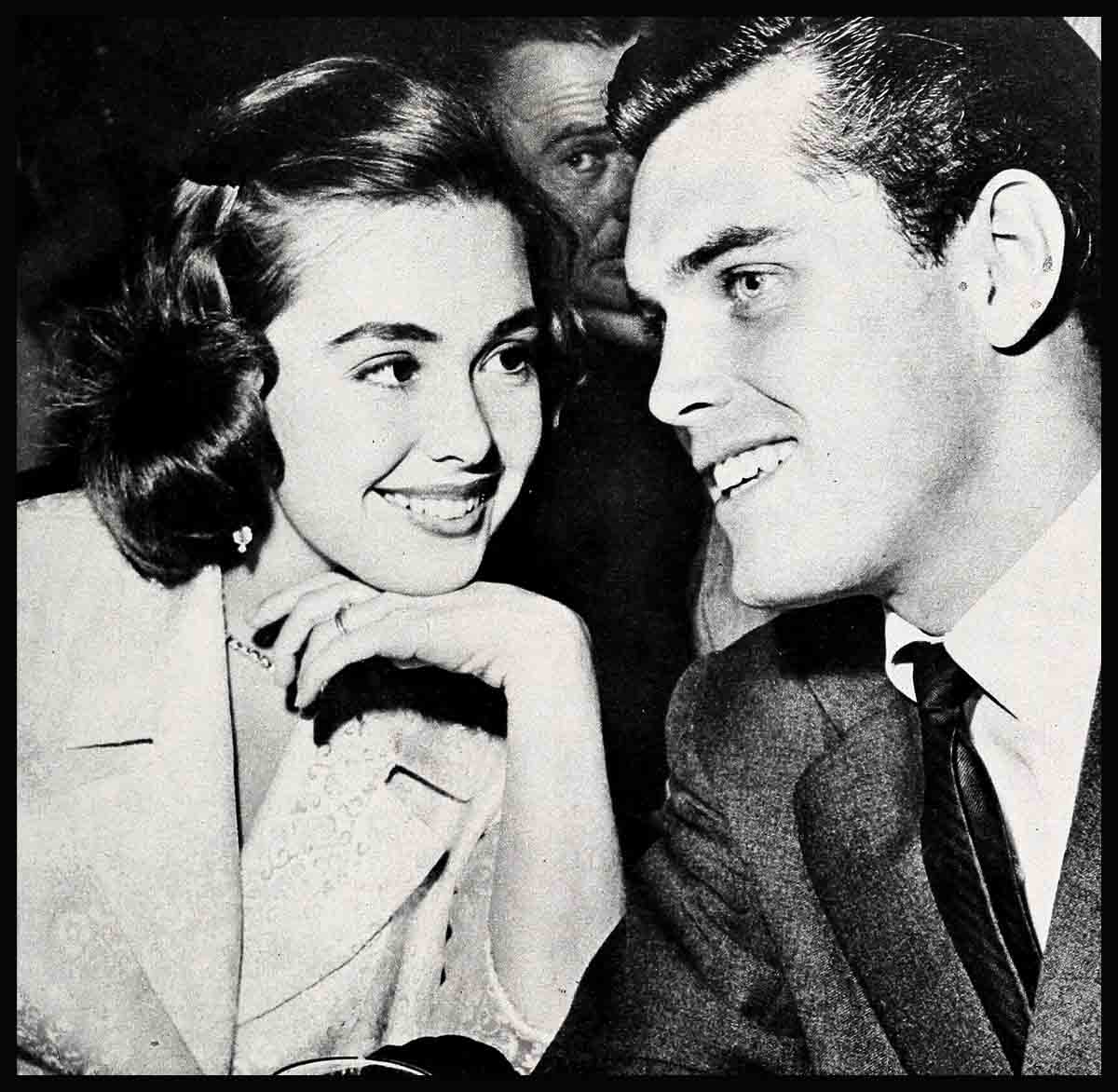
Barbara Rush’s Shining Hour
For ten weeks, 5,500 miles of land and sea separated Barbara Rush from her husband, Jeffrey Hunter, and their son, Christopher. Was she taking serious chances with her personal happiness? To get the answer, let’s take a look at Barbara Rush, actress. So far, we’ve heard more about Jeff Hunter, actor. Now, as the fortunes of Hollywood shift, it’s his wife’s turn to be in the spotlight.
Barbara was on location in Ireland, with the important role of “Aga” in “Captain Lightfoot.” Yet if the decision to go or not to go had been up to Barbara alone, she would have been in California—Mrs. Jeffrey Hunter, housewife, tenderly caring for little Christopher, almost two, and caring nothing about the movie business, except as it concerned her husband. It was Jeff who took command at a crisis in Barbara’s life. It was Jeff who made up her mind for her. That’s why she went to Ireland. That’s why she is now a star.
Every marriage is individual, but this one has been extra-special, in a class apart, from its beginning. Before she met Jeff, Barbara had never really been in love. When she was in college, men were mighty scarce at the University of California, as they were on every other campus in a country at war. Working with the University Players and later with the Pasadena Playhouse, she was very active in the USO. Many a soldier there was charmed at first sight of her dark, slender beauty. “But I was too involved in acting.” Barbara recalls. “I wasn’t interested in marriage.”
Then, new in movies, she met Jeff, also a beginning actor. And her work became not a barrier, but a link between them. “We were nothing,” Barbara says frankly. “And we were both tremendously excited about being in motion pictures.” Well, even love can’t make you forget such a big part of your life. To an outsider, each of them might have seemed to be two people: Barbara, the girl in love, and Barbara Rush, the eager starlet; Hank McKinnies, the man in love, and Jeffrey Hunter, hopefully beginning a new career with his new name. But to Barbara and Hank-Jeff, each was a whole person, wholly loved. Before they decided to marry, they talked over all the problems they would have to face—including the possibility that location trips might part them for long weeks at a time. “Hank and I,” Barbara says firmly, “married each other with the full knowledge that he was an actor and I was an actress.”
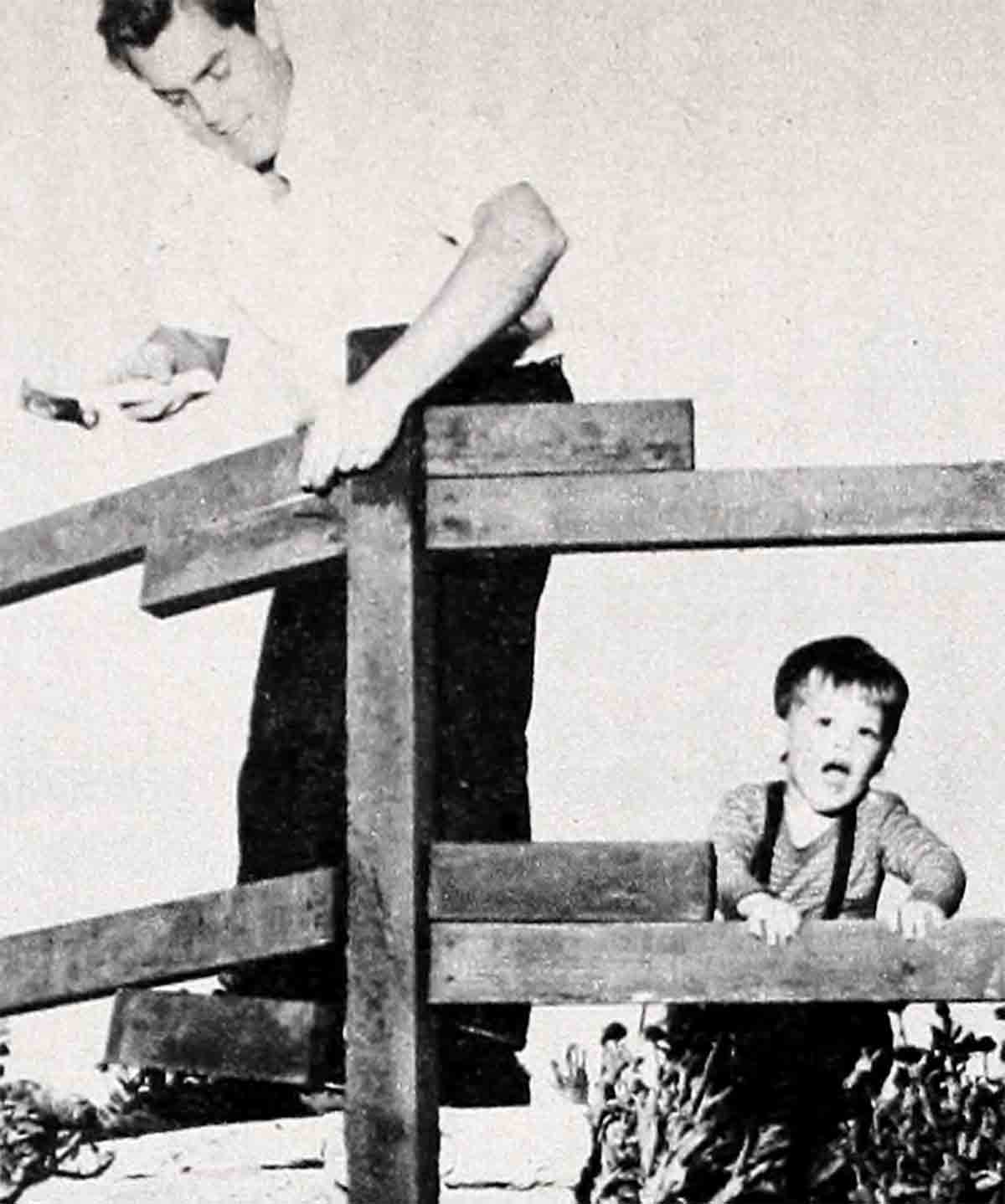
In mind, they were prepared for the pain of temporary separations, but in their hearts they were not—and can never be. When Barbara talks about Jeff’s trip to England and Malta, almost two years ago, her distress at the separation is reflected in her face. “That was the hardest time for me,” she admits. Unhappily, Jeff had to leave for location shooting immediately after their baby was born. During the months of his absence, she had plenty of opportunity to think. Her career seemed stalemated. Though Paramount had made her a member of its “Golden Circle” of newcomers, she hadn’t achieved any really important parts. And this phase of her career had ended when she found Christopher was on the way.
Slowly, Barbara came to a decision. Why bother with movies? she thought. I have my own production—Christopher. I have a nice home, a wonderful husband, a darling baby. Why suffer? It was a strictly feminine decision, such as a man is never called on to make. “A man,” Barbara says, “always moves on. After all, he’s the bringer-homer of the money.”
But the man of the Hunter household turned out to be an unusually understanding husband, realizing that Barbara’s work had meant much more to her than just a source of extra money. When he came home and heard about her retirement plans, he took a vigorous stand. “Hank sat me down and talked to me,” says Barbara. “He said, ‘Just try a little longer. You have something to offer—I’m sure you have. I’m behind you—and Christopher will be proud of you.’ So we talked it over, and I changed my mind. Who, I thought, doesn’t want an actress for a mother?”
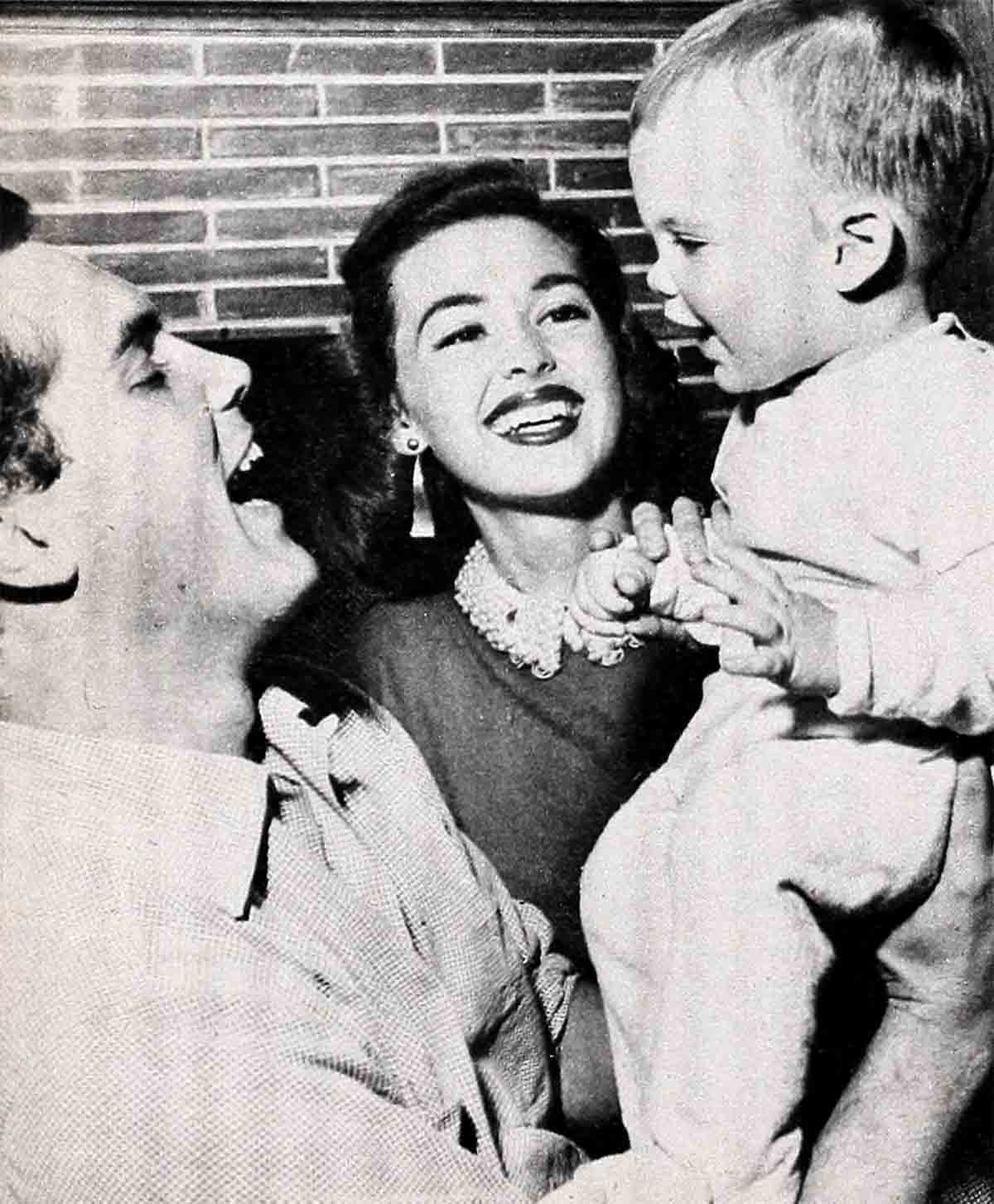
You see, to the young Hunters acting in movies is no humdrum, everyday job. For all their experience, they see the wonderful world of make-believe with its magic untarnished. They know its drawbacks; they know its nervous stresses; and yet they feel its excitement and find strength in sharing the challenge. So Barbara went back to work. Career-wise, Jeff was ahead of her. “And he always will be,” she says proudly. But she soon proved that her husband’s faith in her talent was justified. Her casting in U-I’s “Magnificent Obsession” was the turning point. The role was offered to her almost apologetically as “a nice little part in a big picture. It’ll be a good thing for you.” But Barbara’s warmly emotional performance built up the stature of her role and fully entitled her to co-star billing. Then, suddenly, unexpectedly, came the test of the decision that husband and wife had reached together about their willingness to stand separations.
Barbara was about to leave for a brief visit in New York, to help publicize “Magnificent Obsession,” when a telephone call came through: “Get right over to the studio for costume fittings!” She had been given the first—not the second—feminine lead in the lavish production “Captain Lightfoot,” opposite Rock Hudson. But there was a catch: The picture would be shot in Ireland.
That is, it might have been a catch for any other couple except Barbara Rush and Jeff Hunter. Her immediate reaction was to grab the phone and let him know. “I always do that the minute anything nice happens.” And Jeff was as happy about her good fortune as she was. “It had been a great disappointment to him,” Barbara explains, “that I couldn’t go along when he went to Europe on location, so he was pleased I was going to see a little of what I’d missed.”
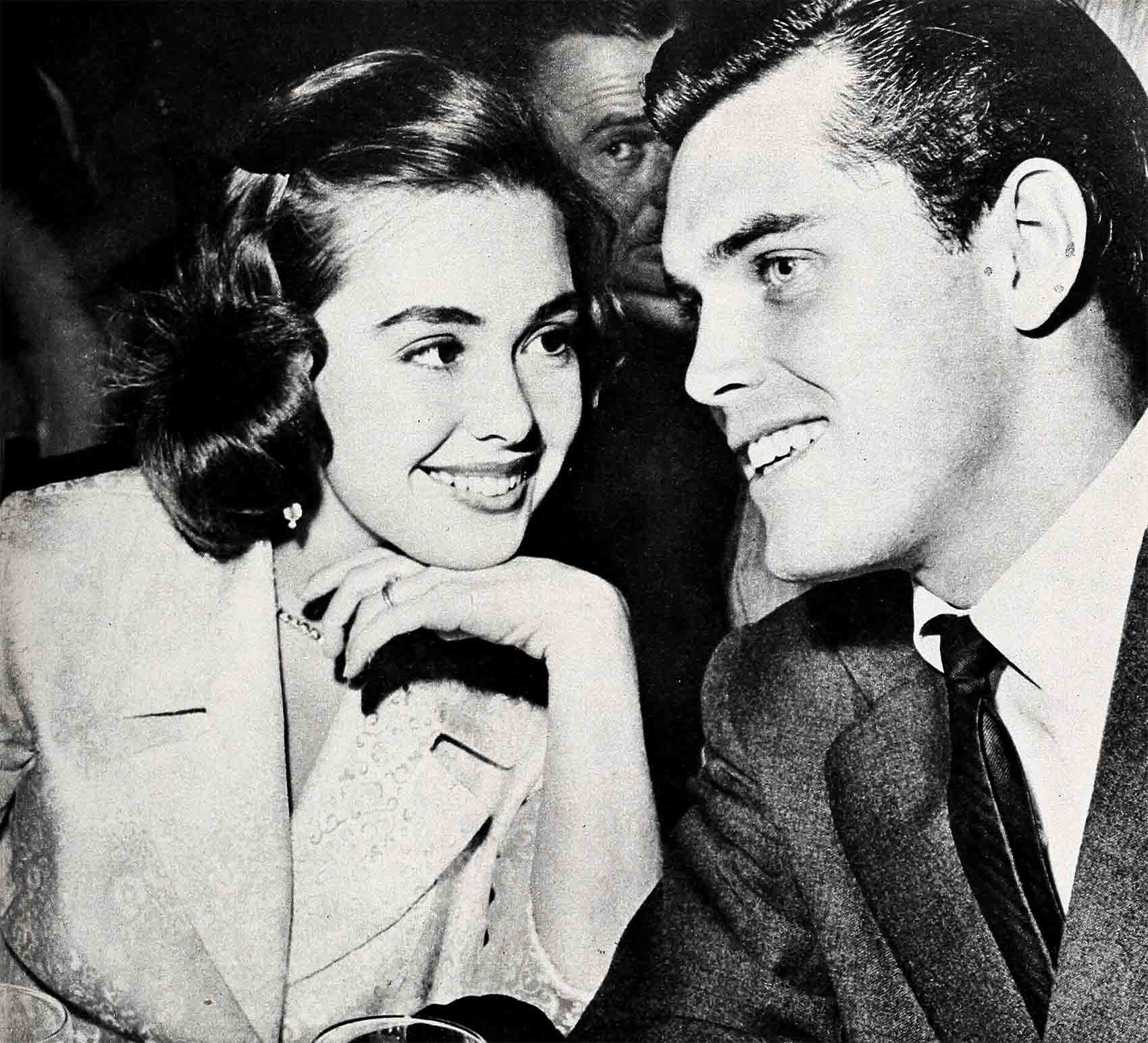
When there is such strong union of spirit, there can be no real separation. There would be letters to link Barbara with her family—every day, she promised. “At least, I’ll try. It’s really easier that way. If you put it off, all of a sudden you’re writing five pages to catch up.” And there would be more than letters.
While Jeff had been in Europe, a family friend who was a newsreel cameraman took pictures of the newborn Hunter heir about every other week, and off they were sent to the young father. Jeff celebrated a birthday while he was supposedly separated from his family—but he really wasn’t. A little ahead of the big day, Barbara staged a birthday party for him back home, with all their friends on hand. Movies of the big occasion went winging Jeff’s way, along with birthday presents and a fruit cake with birthday candles.
So Barbara, with their situations reversed, had Jeff’s precedent to follow while she was abroad. And Jeff let his wife take his camera along on her trip. “It was like giving me his right arm!” she acknowledges. “That’s a very special camera.” In the spring of 1953, Jeff went on a USO tour to Hawaii, the Philippines, Singapore, Hong Kong. In Singapore, he made a good friend, a wealthy Chinese theatre owner still loyal to his native country’s ancient traditions of hospitality. Learning that Jeff had only a borrowed movie camera to record his trip, the Chinese gentleman wanted to present Jeff with an extremely expensive camera. Jeff felt he should refuse the costly gift, until he remembered that his refusal would be an insult in Oriental terms. And this camera is the one Barbara had with her on her trip to Ireland.
So Jeff saw picture souvenirs of her travels around the Emerald Isle before her return. And, with co-star Rock (another family friend) to lend a hand as cameraman, Barbara’s lovely face remained familiar in the eyes of her little son.
She left with not a fear in the world for Chris’s welfare. He would be in the loving, capable hands of her mother, who lives in a charming studio house on the Hunters’ property. Every detail of Chris’s life during those ten weeks was clear in Barbara’s mind as she took off. Chris has his own place to sleep at Grandma’s house; half his toys are there.
For part of the early summer, Chris was in a youngster’s paradise. His grandmother took him to her home state, Wisconsin, to stay at Simonson’s Summer Resort in Hayward. “There’s a beautiful lake,” Barbara says, “with lots of little ducks and chickens. An uncle of mine began teaching Chris to swim—we all start that very early in our family. I knew Chris would have a wonderful time.” And her face lights up at the thought of her son’s happiness.
No, theirs isn’t the conventional pattern of marriage. There may be those who would criticize Barbara. She admits, “The idea of family separation—even briefly—upsets me. I’m on the defensive, even though I know lots of women around Hollywood who have no jobs—and yet send their kids to a nursery school, leave them at home with a nurse—anything to get away from them. They spend less time with their children than I do with Chris.
“When Hank and I are between pictures, we spend more time with our son than the average working couple possibly could. That’s one of the nice things about movies—one of the reasons why we’re really grateful to be in this business. Sometimes the three of us will go off to Palm Springs. Whether we’re working or not, we always have breakfast with Chris—and he keeps to our schedule! If one of us is on a picture—or both of us—he wakes up at six. And if we’re not, he sleeps until seven or eight.”
Happy, healthy, well-adjusted, Chris isn’t at all disturbed by the fact that he’s stuck with a pair of movie-star parents.
During a normal evening at home, while Chris sleeps peacefully, his mother and father are likely to be reading the next day’s lines aloud, recording them, playing them back—and criticizing each other forthrightly. “One of the greatest assets you can have,” Barbara says, “is the ability to accept criticism. We can, even from each other—because we understand each other so well.”
Thanks to Jeff’s intervention, acting and the movies remain very much a part of Barbara’s life. She appreciates “the joys of motion pictures: The hours are wonderful; the work helps to develop the emotions; you get opportunities to travel.” She has given her son all the care she can cram into the leisure hours that movies allow her, and she wants to see to it that he profits by the travel advantages, too. “When Chris is old enough—to heck with school! I’m going to take him with me. He’ll have a tutor, of course, but meeting many different kinds of people will be a real education for him. I mean—we hope we can take him with us.”
For Barbara and Jeff Hunter, co-starring in a picture is a dear, if distant, dream. “We just live for that day!” In the meantime, there will inevitably be separations, and these won’t grow any easier as time goes by—because Barbara is devoted to her son and to Jeff, and misses them every day they are separated. In spite of such pangs, necessary parting leaves no scars on the Hunters’ marriage. “We can go through with it,” Barbara says gravely, “because we love each other so much.”
(Barbara is in “The Black Shield of Falworth.”)
THE END
—BY HILDEGARDE JOHNSON
It is a quote. PHOTOPLAY MAGAZINE SEPTEMBER 1954


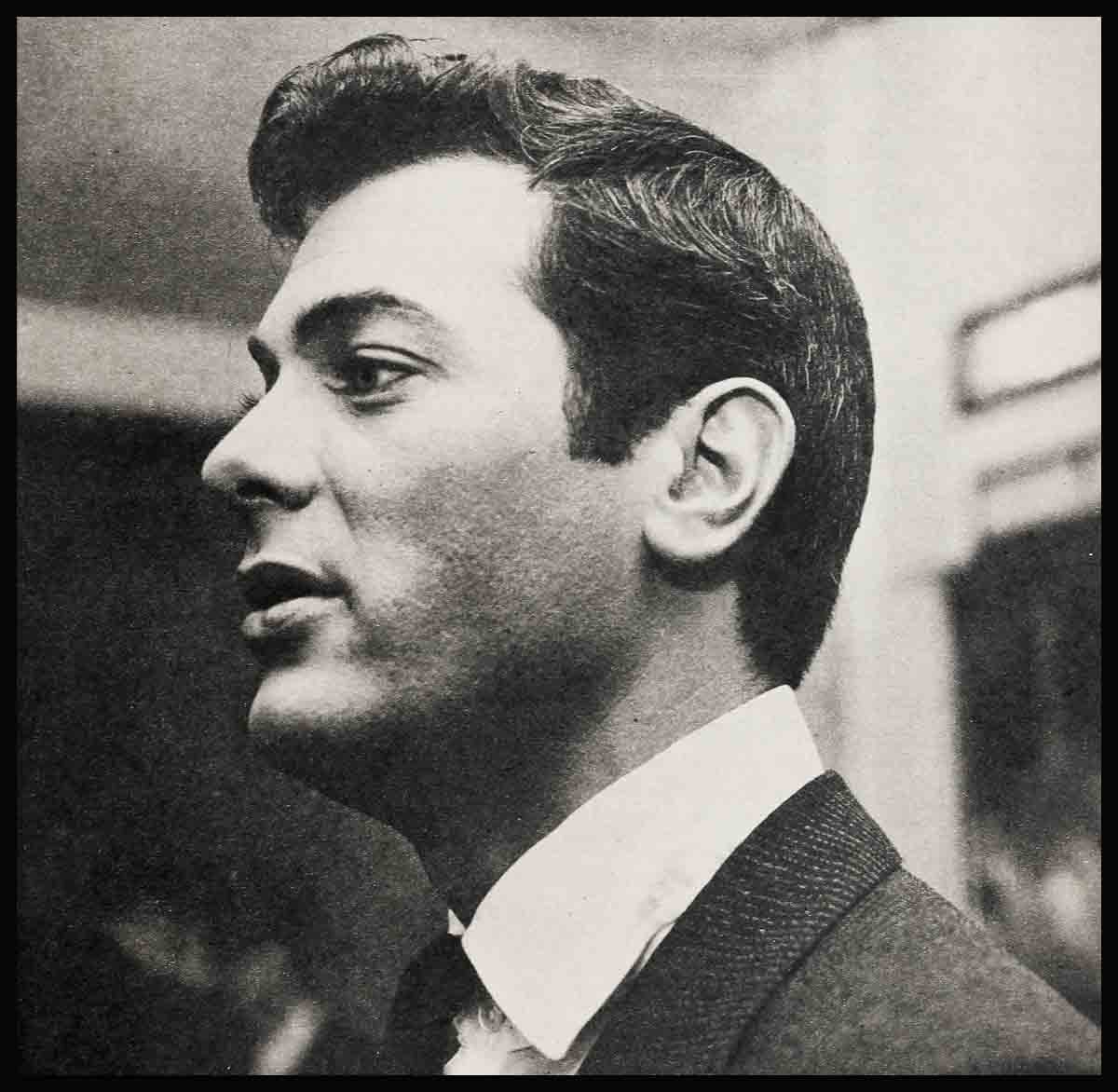
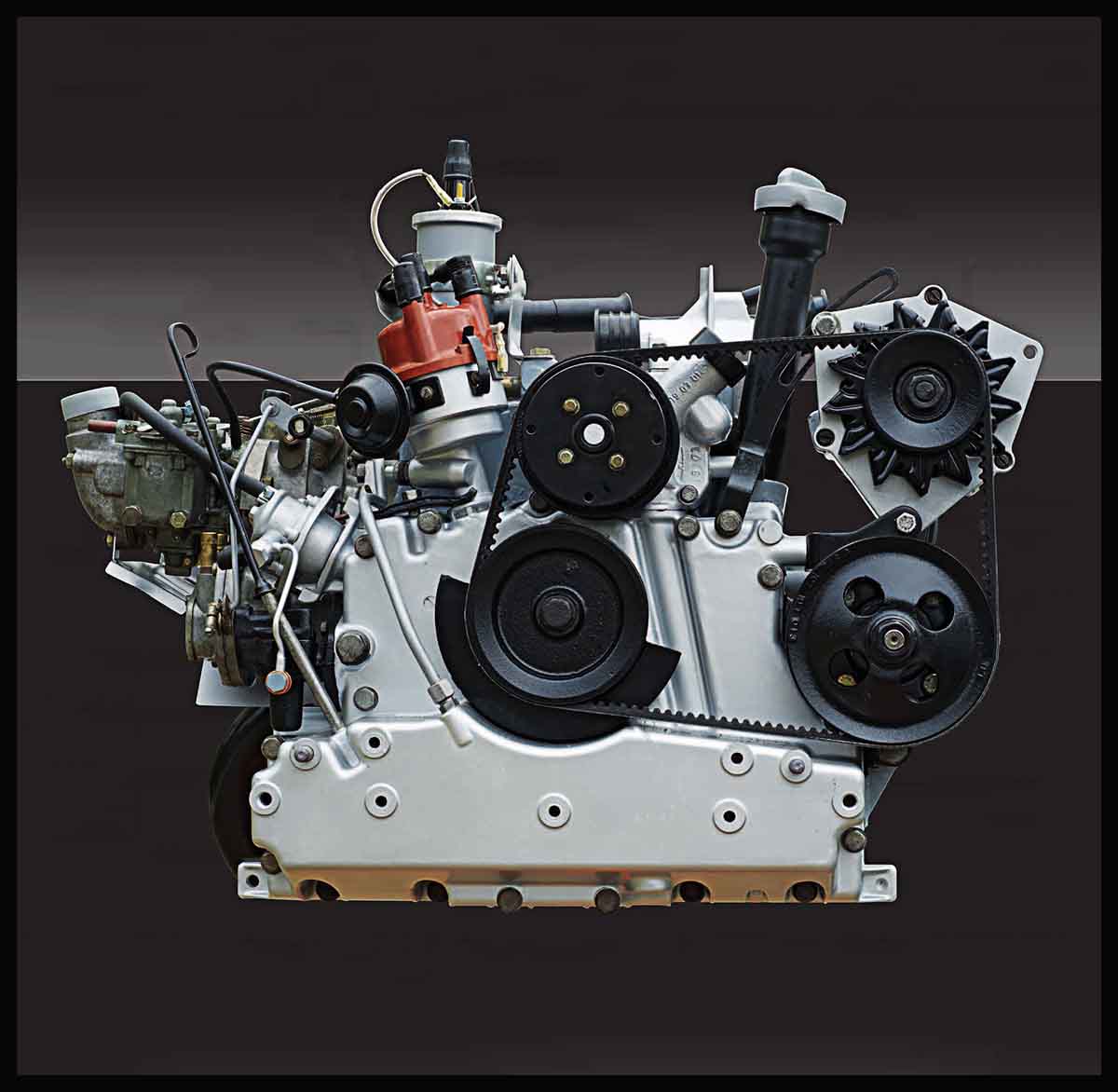
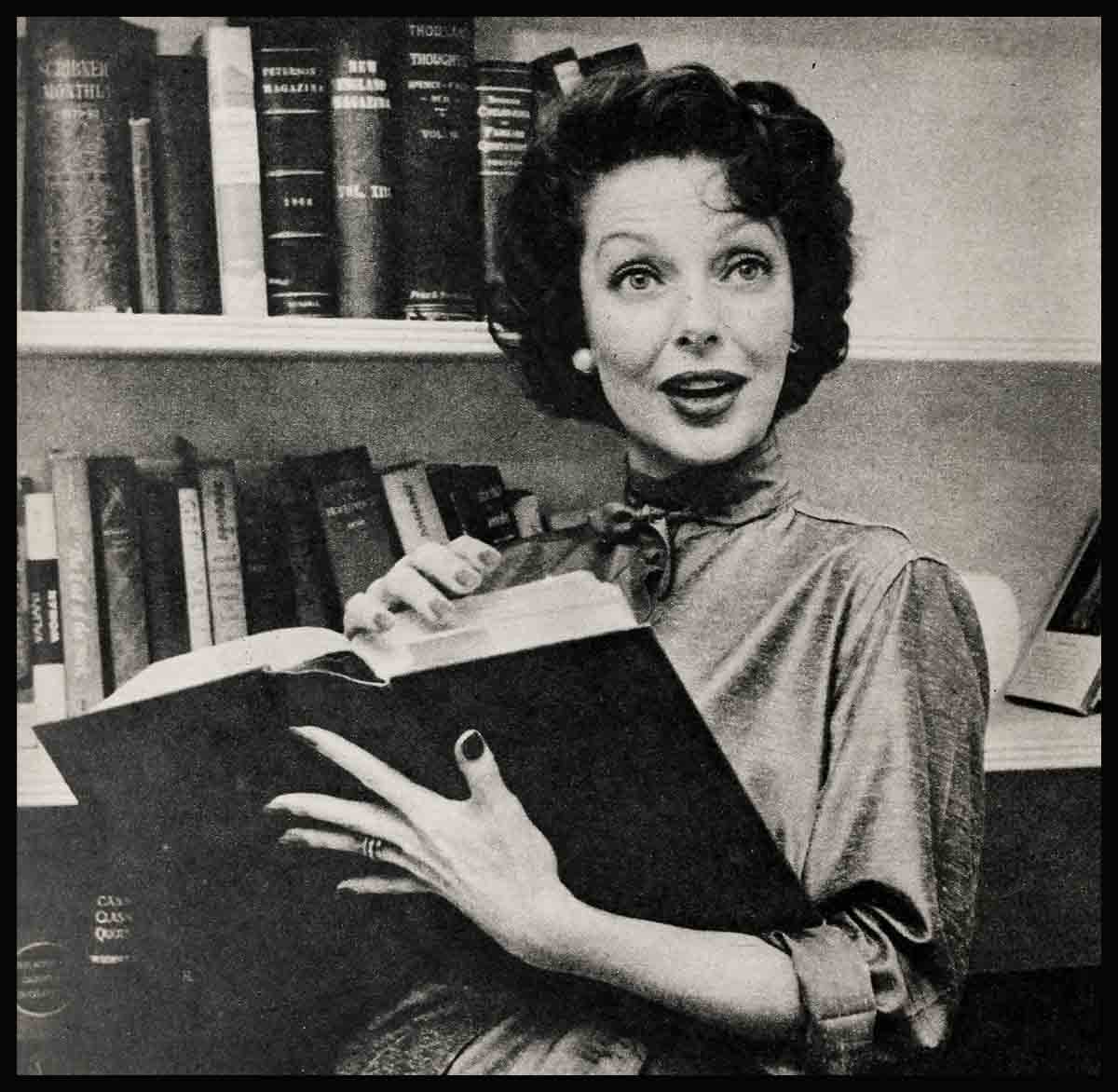
graliontorile
20 Haziran 2023I have been surfing online more than three hours today, yet I never found any interesting article like yours. It’s pretty worth enough for me. Personally, if all site owners and bloggers made good content as you did, the net will be a lot more useful than ever before.
vorbelutrioperbir
17 Temmuz 2023Merely wanna input that you have a very nice website , I love the layout it actually stands out.